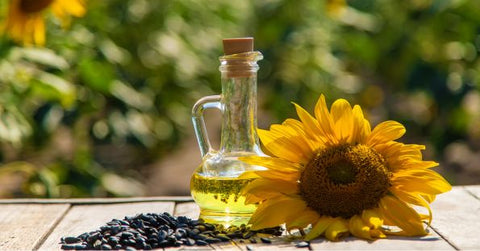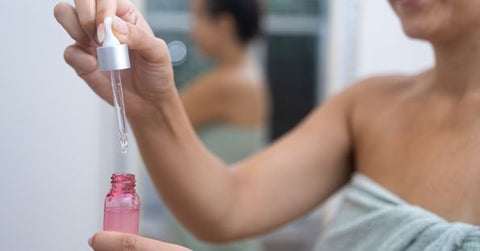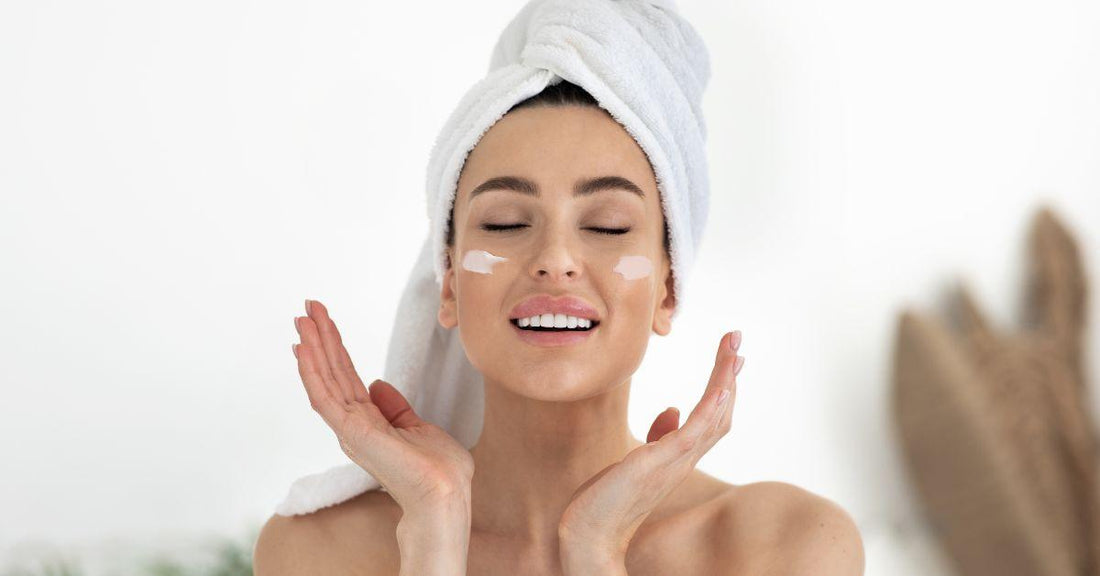7 Home Remedies For Dry Skin In Winter
Moisturised skin is indicative of overall good health whereas dry skin that lacks moisture in the outer layer can crack and is prone to infection. Skin dryness is particularly a concern in winter when humidity is low. Thus, taking care of your skin in winter and pampering it to keep it soft, supple, and nourished at all times is crucial. It renders natural radiance to your appearance.
In our quest to have moisturized skin, we know that store-bought treatments that provide skin with hydration can sometimes be out of pocket. So we bring you some accessible & inexpensive home remedies to get rid of skin dryness in winter that works like a charm. Take a read!
7 Winter Home Remedies For Dry Skin
1. Coconut Oil

Natural oils that the skin produces help moisturise the skin but daily activities and environmental factors can sometimes deplete these oils. Coconut oil is safe and effective in replenishing the moisture in the skin. It is an amazing moisturiser for dry and cracked skin. It improves skin hydration and reinforces the skin’s natural defensive barrier due to the presence of saturated fatty acids with emollient properties it.
Also Read: Essential Skincare Tips For Winter That Work Wonders
2. Petroleum Jelly

Petroleum jelly is among the most effective remedies for treating dry skin and intense skin moisturization. It sits on the top of the skin and acts as a barrier, preventing moisture from leaving your skin. It is used for cracked heels, and chapped lips and makes a good moisturising lotion for the face and skin.
3. Aloe Vera Gel

Aloe vera gel can be used as a moisturising gel as humectants in aloe vera bind the moisture in the skin. When you apply aloe vera gel to your face, it does leave a greasy film but is instantly soaked in by the skin to give it a smooth and moisturised appearance.
Aloe vera gel also increases collagen and elastin production in the skin and boosts skin elasticity. It is one of the best home remedies for dry skin in winter. You can apply aloe vera gel on dry hands and feet and cover the areas with gloves or socks for a comfortable, cozy feel.
Also Read: How To Use Aloe Vera For Skin Whitening?
4. Honey

Honey is a natural moisturiser that hydrates and heals the skin. It penetrates deep into the layers of skin, helps clear pores, and is packed with antioxidants that fight free radicals and help restore your natural glow. Apply honey on dry areas such as your face and arms, leave it for 15-20 minutes, rinse with warm water, and get nourished and moisturised skin.
5. Oatmeal Bath
Taking an oatmeal bath by adding finely ground oatmeal to your bath helps lock in skin moisture. As oatmeal is a natural ingredient with anti-inflammatory and antioxidant properties, it is often added to creams to relieve dry skin. It is among the home remedies for dry skin which softens and moisturises the skin well.
Also Read: 12 Tomato Benefits For Skin | DIY Masks
6. Sunflower Oil

Sunflower oil has multitudes of benefits for the skin. It hydrates, calms, soothes, and protects the skin. It also helps get rid of dead cells and reduce wrinkles. So when you apply sunflower oil to your skin to hydrate, you get a complete package deal.
7. Glycerin

As glycerin does wonders in healing chapped lips so does it for your dry skin in winter, strengthening the skin barrier, boosting skin hydration, relieving skin dryness, and refreshing the skin’s surface. It is an emollient that softens skin and helps a great deal in case of psoriasis or eczema. Just combine 2 tbsp of glycerin with an equal amount of rosewater and apply on the dry areas for an hour. Rinse off with lukewarm water.
Also Read: How To Use Glycerin For Skin Lightening?
Conclusion
Know that hydrated skin is healthy. Moisturized skin is rejuvenated and looks soft, smooth, and supple. Apply the above-mentioned home remedies for dry skin on legs, arms, and face after a bath when your skin is damp, and let them be soaked in. Let your skin thrive by nourishing it with a regular dose of hydration and enjoy a healthy texture and appearance of the skin.
Disclaimer: This article is entirely based on research and data from the internet and it is always recommended to consult a dermatologist before following any remedy or making changes to your regime.











Leave a comment
Please note, comments need to be approved before they are published.